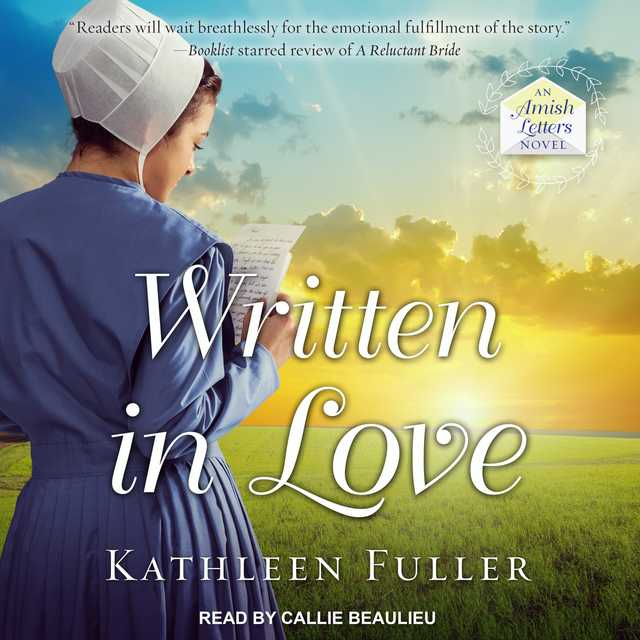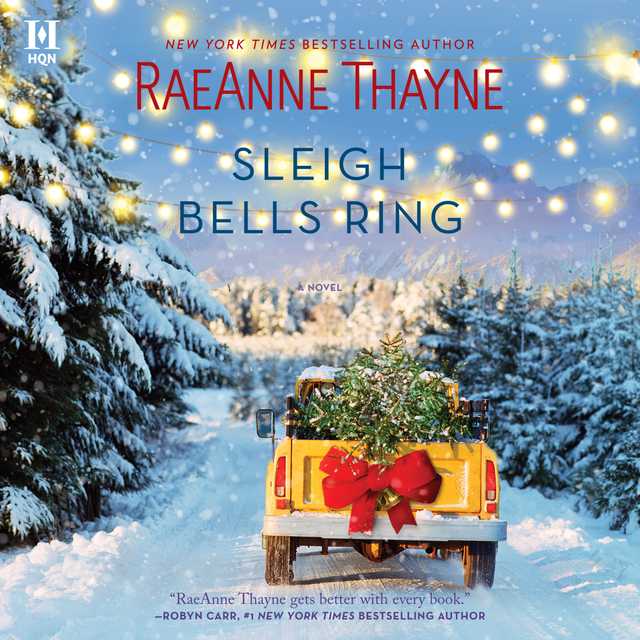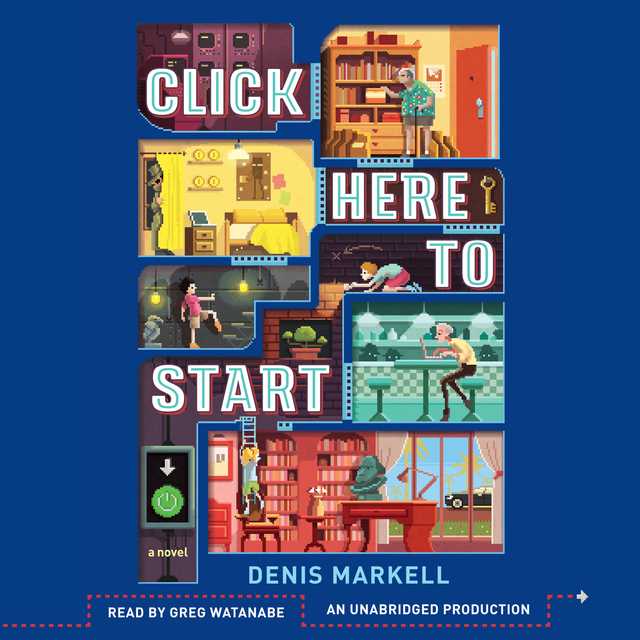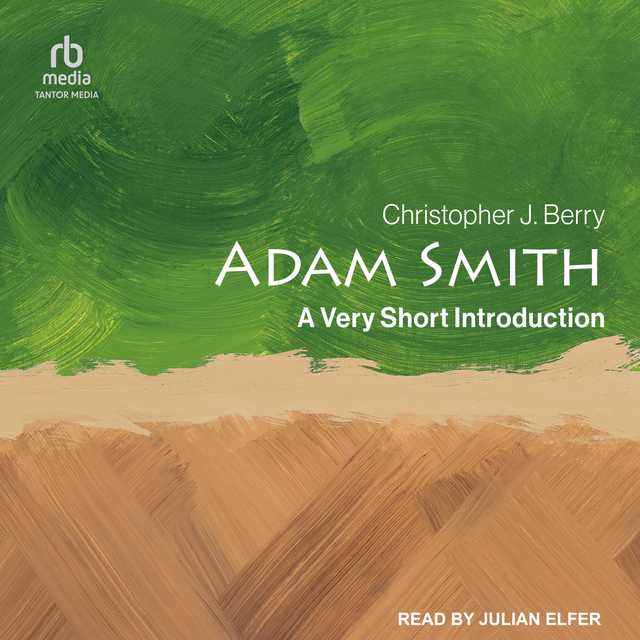A Burnable Book Audiobook Summary
In Chaucer’s London, betrayal, murder, royal intrigue, mystery, and dangerous politics swirl around the existence of a prophetic book that foretells the deaths of England’s kings. Bruce Holsinger’s A Burnable Book is an irresistible historical thriller reminiscent of the classics An Instance of the Fingerpost, The Name of the Rose, and The Crimson Petal and the White.
London, 1385. Surrounded by ruthless courtiers–including his powerful uncle, John of Gaunt, and Gaunt’s artful mistress, Katherine Swynford–England’s young, still untested king, Richard II, is in mortal peril, and the danger is only beginning. Songs are heard across London–catchy verses said to originate from an ancient book that prophesies the end of England’s kings–and among the book’s predictions is Richard’s assassination.
Only a few powerful men know that the cryptic lines derive from a “burnable book,” a seditious work that threatens the stability of the realm. To find the manuscript, wily bureaucrat Geoffrey Chaucer turns to fellow poet John Gower, a professional trader in information with connections high and low. Gower discovers that the book and incriminating evidence about its author have fallen into the unwitting hands of innocents, who will be drawn into a labyrinthine conspiracy that reaches from the king’s court to London’s slums and stews–and potentially implicates his own son. As the intrigue deepens, it becomes clear that Gower, a man with secrets of his own, may be the last hope to save a king from a terrible fate.
Medieval scholar Bruce Holsinger draws on his vast knowledge of the period to add colorful, authentic detail–on everything from poetry and bookbinding to court intrigues and brothels–to this highly entertaining and brilliantly constructed epic literary mystery that brings medieval England gloriously to life.
Other Top Audiobooks
A Burnable Book Audiobook Narrator
Simon Vance is the narrator of A Burnable Book audiobook that was written by Bruce Holsinger
Bruce Holsinger is the author of the first John Gower novel, A Burnable Book, and an award-winning scholar of the medieval period who teaches at the University of Virginia. He is a Guggenheim Fellow and a recipient of research fellowships from the American Council of Learned Societies and the National Endowment for the Humanities. www.bruceholsinger.com
About the Author(s) of A Burnable Book
Bruce Holsinger is the author of A Burnable Book
More From the Same
- Author : Bruce Holsinger
- The Gifted School
- The Displacements
- The Invention of Fire
- Publisher : HarperAudio
- Abraham
- American Gods [TV Tie-In]
- Dead Ringer
- House of Sand and Fog
- Prey
A Burnable Book Full Details
| Narrator | Simon Vance |
| Length | 13 hours 59 minutes |
| Author | Bruce Holsinger |
| Category | |
| Publisher | HarperAudio |
| Release date | February 18, 2014 |
| ISBN | 9780062308689 |
Additional info
The publisher of the A Burnable Book is HarperAudio. The imprint is HarperAudio. It is supplied by HarperAudio. The ISBN-13 is 9780062308689.
Global Availability
This book is only available in the United States.
Goodreads Reviews
Jeffrey
October 01, 2018
“There is no deception on the part of the woman, where a man bewilders himself: if he deludes his own wits, I can certainly acquit the women. Whatever man allows his mind to dwell upon the imprint his imagination has foolishly taken of women, is fanning the flames within himself -- and, since the woman knows nothing about it, she is not to blame. For if a man incites himself to drown, and will not restrain himself, it is not the water's fault.” ― John Gower, Confessio Amantis John “Dour” Gower. The great bard himself, William Shakespeare, used Gower as a character in three plays. Pericles, Prince of Tyre, Henry V, and Henry IV Part II .Geoffrey Chaucer in a moment of romantic lust wrote a series of poems for a young lady. Poets use their best gifts, words, when seducing pretty, nubile women. This book of poems came up missing and though in themselves they are not dangerous, he was writing couplets about the deaths of English kings, when another couplet about a living king is added the book goes from being an amusing fancy of seduction to treason.
Sharon
May 12, 2017
Two pieces of disclosure to get out at the very beginning: Prof. Holsinger was my instructor for an excellent class entitled "Plagues, Witches and War: The Worlds of Historical Fiction." I also received an advance reader's copy of the book through his publisher.So, with all of that said: wow, what a ride!The story starts with the murder of a young woman and the theft of a ancient book that contains accurate prophecies of the deaths of England's kings -- and one about the current monarch, Richard II. Poets John Gower and Geoffrey Chaucer are working on finding the book ... as is half of England's gentry, because the Duke of Lancaster is implicated in the plot.And who happens to find the book? A whore named Agnes, who witnesses the murder of the young woman. She tells her friend, a transvestite prostitute called Eleanor, about it.Holsinger uses the devices of the prostitutes (called maudlyns during the period, based on the contemporary pronunciation of Magdalene) to introduce us to the underworld of London and Southwark, then two different towns. Thus, we have something of an "Upstairs, Downstairs" look at the culture of the time through the eyes of characters both high and low.The mystery unfolds through the missing poetry, and I must admit that I was constantly surprised as facts and red herrings alike were introduced to keep the reader guessing until the very end.The book is well-researched, with Holsinger providing information on books and primary sources he consulted to create the novel. I highly recommend it for fans of historical mysteries; this is one of the finest I've read.
Aly
May 14, 2014
I just got back from a trip to the fourteenth century, courtesy of A Burnable Book by Bruce Holsinger. Set primarily in London at the time of Chaucer (before he wrote Canterbury Tales), the book is a historical thriller that will keep you turning the pages.The main plot centers around a search for the “burnable book” of the title. Said to be written during the reign of William the Conqueror, the seditious book foretells the death of the English monarchs. Only the thirteenth prophecy has not yet been fulfilled – and it is about the current king! At the beginning of the novel, the book in question falls into the hands of Agnes, a maudlyn (prostitute), and Agnes enlists her sister Millicent and a friend (Eleanor Rykener, also known as Edgar) into helping figure out what to do with it. Meanwhile, Geoffrey Chaucer himself has recruited his friend and fellow poet John Gower into helping him find the book. It quickly becomes apparent that Chaucer is not the only one looking for the book, and bit by bit it seems like all the omens leading to King Richard II’s death are being fulfilled.The primary plot is supplemented by a complex web of numerous subplots, including the story of a girl from Spain, the ambitions of the mercenary John Hawkwood, and Rykener’s quest to rescue younger brother Gerald from a dangerous guardianship. The characters are well-developed, with believable interactions with each other.Holsinger gives us some glimpses of the life of royalty and other members of the upper class, but for the most part, the reader is immersed into the earthy lives of the maudlyns and others who struggle to survive in a harsh world. The fourteenth century really comes to life with the rich details of everyday living. Holsinger’s masterful use of language provides a definite medieval ambience, with selected Middle English words incorporated into the dialogue, but not so many as to make it difficult for a modern reader to decipher.Authors of historical fiction have artistic license to alter or embellish some details in the interest of creating a more compelling story, but there is the unwritten “rule” that the threads of history must remain intact if the work is to be called historical fiction rather than, say, historical fantasy or alternate history. When real historical figures are used as characters, they must remain true to the nature of the actual historical person. When not much is known about a historical figure, details may be made up, but the goal should be to try to recreate the person as he or she really may have been. I think Holsinger did a wonderful job in developing the Rykener character, who was a real historical person, but one about whom very little is known. My biggest qualm with the book is some discomfort with the character of John Gower. We know relatively little about Gower’s real life, but we do have a reasonably large corpus of surviving work that may provide insight into his nature, as well as some known key details of his life. The characterization of Gower as a combination of a blackmailer and a detective is not entirely convincing relative to what we do know of Gower’s actual life. Also, for someone who is supposed to be a devious and skilled snoop, Gower seems to make a lot of blunders and miscalculations.A Burnable Book is highly recommended to those who enjoy fast-paced thrillers as well to fans of historical fiction.This review is also available at http://wyrtwizard.blogspot.com/2014/0...
Samantha
March 21, 2014
This is a finely written novel that will pull you in and keep you guessing until the very end. I listened to this on audiobook, so there were a few times that I thought I must be getting close to the end only to be surprised by another plot twist. I am not a great reader of mysteries, so I will not say more than that I was shocked several times. The cast of characters in this book is large with intricately woven backgrounds. Each time a little connection was made, I was impressed by the author's cleverness. The main character is John Gower, close friend of Geoffrey Chaucer, who also makes several appearances. From transvestite London prostitutes to Italian papal legates, Holsinger ties them together expertly. The reader also gets glimpses of Richard II, John of Gaunt, and Katherine Swynford.Rich in historical detail and beautifully written, the mystery seems almost second to just dwelling in 14th century daily life. Everything centers around a book of prophesies, "The Book of the Deaths of English Kings" which John Gower is on a quest to locate. People are dying to get it...or because they have it. But does it really prophesy the death of Richard II?I would like to read this book again (rather than listen to it) because there was a lot to keep track of with the numerous characters, locations, and plot twists and connections. I feel like I just might have missed a few things. However, listening to it was also enjoyable because the Audible narrator was excellent. Different voices & accents made this book truly come to life, and his voice is so lovely I could listen to him read a dishwasher repair manual. Then there's that gorgeous cover! This is a great book for anyone who enjoys medieval history or mysteries.
Bookish Ally
June 09, 2018
"Though faun escape the falcon’s claws and crochet cut its snare, when father, son, and ghost we sing, of city’s blade beware!"As this book begins we view the murder of a woman, whose identity we do not know by a man with an unknown identity who is described only by a rich description of his voice: “At first he is kind seeming, almost gentle with her. They speak something like French: not the flavor of Stratford-at-Bowe nor of Paris, but a deep and throated tongue, tinged with the south. Olives and figs in his voice, the embrace of a warmer sea.”We are viewing this through the eyes of Agnes, a street prostitute and so we launch into a complex tale of puzzles and intrigues, of stories within stories. There are so many characters and moving parts that at first I struggled to keep them all straight, I had to go back for clarity’s sake several times. Please do not take this as a criticism of the book-I think every character was richly outlined and fleshed out. Who did it? And to whom? For what reason? This is not a simple mystery or thriller but one densely layered (and may I interject, well researched) by a it’s author, a professor and scholar. For those interested in historic fiction of the Middle Ages, who long for details of an England so long ago, I confidently recommend this book, set in the time of Richard II, John of Gaunt, and Katherine Swynford.
Peggyzbooksnmusic
June 12, 2019
This is a bawdy, gritty historical mystery set during the reign of Richard II. The story is told from different points of view although the main character is poet John Gower who is also a "professional trader in information". He is contacted by fellow poet and bureaucrat Geoffrey Chaucer (I believe that this is before Chaucer published his famous writings) to find a book that prophesies Richard's II assassination. Lots of court intrigue surrounding the secondary characters such as John Gaunt, Richard's Uncle, and Gaunt's mistress, Katherine Swynford. The author is Medieval scholar Bruce Holsinger and in my opinion he does a fantastic job of immersing the reader into life in 14th century London. His descriptions of the slums is especially realistic and some of the most memorable characters are the "common" whores and tradesmen. Looking forward to reading the next in this series.
Lawrence
March 12, 2014
Two sliding-doors moments in my life colour my response to this wonderful book. First, it's 2007, and having spent the past few years writing a scholarly book on the great fourteenth-century poem Piers Plowman, I decided I needed to plot my escape from its wiles. I had found a small text whose appearances I was trying to trace, and typed 'commonplace book' into the library search catalogue. The top hit was the Winchester Anthology, a compilation of poems, sermons, and music produced in the 15th-16th centuries in a monastery. One of the items was ... a short excerpt from Piers Plowman (!), very much in keeping with the political prophecies of that era: 'When you see the sun amiss, and two monks' heads, and a maid have the mastery' and so on. Crazy stuff. Readers of Peter Ackroyd's The Clerkenwell Tales might remember these lines. This opened out a whole new world to me, one in which people all the way up to Thomas Cromwell were paying careful attention to what medieval poets had to say. (self-plug: interested readers can find out more in my new book The Myth of "Piers Plowman": Constructing a Medieval Literary Archive, Cambridge Univ. Press 2014, website here. Yes, I wrote another book on the poem.)Hilary Mantel lets this mode of culture slide by for the most part, but not Bruce Holsinger: The 'book' of his A Burnable Book is a collection of just these sorts of prophecies--ones that send the powerful and their minions and the whores and the poets in search of hidden secrets on the backstreets of London and Southwark in the mid-1380s. We get to know these prophecies well over the course of the book, and indeed they are written in a very good modern approximation of the alliterative lines of Piers Plowman. There is a wonderful moment when Geoffrey Chaucer in effect speaks Piers Plowman, the poem itself--wonderful in part because it works well in the novel, but also because it provides one of the many pleasures awaiting those who know not only Middle English literature but its modern scholarship too. For it Holsinger relies on a great 1995 essay by Andrew Galloway on riddling in Piers Plowman and in Oxford literary circles--and he acknowledges the work of Galloway among others as informing his portrait of John Gower, too. Those acknowledgments point out that such moments of recognition are there on nearly every page for teachers and scholars of Middle English poetry.This is all by way of saying that, while most readers will, and should, enjoy this as a cracking historical thriller, with twists and turns, plenty of the seedy underworld on the one hand and the riches of the nobility on the other, and wonderful characters of all types, it also comes to life because of its author's keep knowledge of the era and expertise in the art of narrative, for which Gower and Chaucer are such good models. There is also in here a serious argument about the ways in which we conceptualize history and our relationship to it. Here is where my second sliding-doors moment comes into play. Just over a year ago, I needed to update my address in the Modern Language Association and so logged on to its web page. Just then the MLA had announced its book prizes: and book of the year, as it were, went to Stephen Greenblatt's The Swerve, one of the most blatant anti-medieval books to have been published, ever. The good, the modern, "swerved" away from the dark, the medieval: that's its thesis. I tweeted my discovery of this announcement, tagging two scholars I knew had been riled up about that book. Within a day, Bruce Holsinger's tweets captured the madness in hilarious fashion, simply by juxtaposing Greenblatt quotes with, well, facts. "In the Middle Ages, 'pleasure seeking had come to seem philosophically indefensible,' as the Wife of Bath's Prologue shows us. #TheSwerve" read one. "In the Middle Ages, 'the pursuit of pain triumphed over the pursuit of pleasure,' as demonstrated by medieval feasts, sex, and dancing." (You can see the archive here.)This comes into play in A Burnable Book in two ways. The most direct is that the wonderful male transvestite prostitute, Edgar/Eleanor Rykener (based on a real figure), is called a "swerver," a wonderful neologism that will remind any reader of medieval and Early Modern scholarship of the Greenblatt debacle. But more important is that the book itself mounts such a powerful argument against the vision of the medieval that the mainstream book reviewers, the ones that adored The Swerve, take for granted. This is a rich world very much in the image of our own--and a very 'medieval' one in that Holsinger really knows his stuff. He's not making this world up: what he does make up animates a world that anyone who cares can learn about. Anyone out there about to take my course on London Literature, 1380-1450: welcome to our guide.In that regard, while I have seen the comparisons of A Burnable Book with Eco's The Name of the Rose and Pears's Instance of the Fingerpost, which are quite apt, for my part I see this as a book very much of its moment: of, that is, the moment of Mandel and Greenblatt, one in which the 'modern' is so forcefully identified as originating in certain individuals who rose out of the dark, medieval world of communities and faith. A Burnable Book shows the Middle Ages to be just as much as a world of individuals as what came later, whatever Wolf Hall might want to believe. (For the record I love Wolf Hall, not least because its dedicatee is the keeper of manuscripts at the Huntington Library, responsible for the safe-keeping, and provision to scholars, of such treasures as Chaucer's Canterbury Tales, Gower's Confessio Amantis, and ... Langland's Piers Plowman.)One last connection between the world of modern literary scholarship and that of the London and Southwark of A Burnable Book. In 1996, Holsinger edited a special issue of the journal English Language Notes devoted to "Literary History and the Religious Turn" (see here). "Many of the present contributors," wrote Holsinger, many years before Greenblatt's book, "would probably object that this putative religious turn is actually more of a swerve, the explicit and self-conscious dimension of an enduring religious preoccupation among theorists, historians, and critics of literary production." Indeed: and it is a preoccupation that manifests in the novel in the figure of John Clanvowe and the specter of John Wyclif, who lurk in the shadows of what is already such a shadowy world. But that's very much the world of Oxford, and is one of the intellect as much as or more than the spirit, as it were; in the London/Southwark of the novel the religious turn, or even swerve, hasn't really occurred. These are all on the whole indifferent to the church except as another form of institutionalized power, usually subject to abuse. I'm hoping that the sequel to this terrific novel takes on the Chaucer of the Parson's Tale as much as of Troilus; but regardless, I know I'll love it.
Nita
March 10, 2016
What a journey to the fourteenth century England! This book took me to an era and showed me two sides of a city - one that is bright with its Kings, poets, chancellors and the other is dark with its maudylns and butchers filled with filth and dirt. But, even where all looks bright, the city is full with people with deception as their second nature. Every one has a secret and all of them hold their secrets hidden close to their heart.From the very first page of the book till its end - the book does not fail to intrigue its readers.Plot "Who'd have thought it?The very King of England, by the cross, and his life in the hands of five whores!" The book begins with a murder of a girl for a book. A book that will soon be searched by people in and around England. It contains a list of prophesy that foretells the death of kings of England. The last one predicts the assassination of the king at present - King Richard.With the book lost and King's life at stake, bureaucrat Geoffrey Chaucer turns to his friend and his fellow poet John Gower to find the book. Gower trades in information and knows England like back of his hand - no one can be better suited for this job.But, who would guess that the book searched by everyone would end up in the hands of a prostitute.The conspiracy gets deeper, Gower becomes the last and only hope that can save the king.What I likeOhh...where to begin with what I liked? The writing, the plot, the suspense, the characters or the attribute of beautifully interwoven facts and fiction. There was so much to love, appreciate and enjoy in this book that I can't even begin to explain.This book is a well researched and with its vivid description the readers would find themselves traversing the streets of fourteenth century London along with Chaucer and Gower.Coming to the characters, I would say no one can be trusted. Chaucer is poet and a romantic but that's not all.Gower, a trader of information, in the process of finding the book, finds himself in situations where his skills appear of no use.The writing in this book is fantastic and there were parts that I re-read because they were so magnificently written. He wrote of characters feelings in way that you can't help but admire. "I stared, and it struck me almost violently how far my poise and skill had plummeted over the last weeks. And how pathetic it must have appeared that John Gower, who fashioned himself the great trafficker in men's secrets, had freely handed three of his own to the keeper of Newgate." What I did not likeThis is not something I disliked but something which confused me here and there. And that is - a large number of characters! There are so many characters in the book that it sometimes became extremely difficult to keep account of who is who.But, I guess, the author knew that the readers might face this problem and hence at start of the book he included 'Cast of Characters' - a comprehensive list of all the characters in the book along with some details. And I often referred to this list!My final thoughts on the bookI don't remember when was the last time when I felt a rush of adrenaline in the last few pages of the book. Today it happened - near the climax with only twenty or few more pages remaining, I felt the urge to just skip to the climatic scene and see what happened in the end. My heart was beating fast and I was eager to know how it will end and the wait to know it was killing me. The few pages appeared like long distance from the truth and conspiracy that would surface. I began reading fast to complete excruciating journey to the page where the suspense unfolded.This book kept me hooked throughout and I never found it slow or boring. I feel this book would be fantastic as a movie and I hope someday it is made into one. Though, if that happens then, as usually the case with movies-based-on-books is, the expectations would be high.If you enjoy historical fiction with inclusion of some reality and you enjoy thrill and suspense in your book, then this should be your next read.
Ellen Gail
May 01, 2015
4.5 history-mystery-britishy stars!A cloth, a book, a snatch of verse. Which is worth dying for?Bruce Holsinger's debut novel is a total winner! Set in 1385 England, the plot centers about a treasonous book of poems that prophesies the deaths of English kings, including one that hasn't happened yet. Using a mix of real historical figures and a dose of imagination, the plot is fantastic. It's mysterious without being unnecessarily withholding. It effectively builds suspense and the twists and revelations feel natural. It reminds me a bit of The Thief Taker and the kind of mystery it attempted to build. A Burnable Book is much, much better and more successful all around.You must convince your readers that your characters are flesh and blood rather than words on dead skin, that their loves and hatreds and passions are as deep and present as the readers' own. Your task is to delight, to pleasure, to lift your reader to another sphere of being and then strand him there, floating above the earth and panting for more lines.A big reason why the plot is so successful is the characters. The main character John Gower, (yes that John Gower, poet & close friend of Geoffrey Chaucer, who is also a prominent character here) acts to tie the supporting cast together, while being a good character on his own. While he's not my favorite, I found his relationship with his son Simon to be especially interesting."The very king of England, by the cross, and his life in the hands of five whores!"My favorite characters were easily the whores of The Pricking Bishop and Gropecunt Lane. Agnes, Millicent, Edgar/Eleanor, Bess, and Joan are all fabulous characters. They are written with such honesty; free to be greedy, selfish, brave, loving, bitter, whatever. They are useful to the plot and each other and thoughtfully written.Special awesome character nomination to Seguina d'Orange. I would happily read a story from her perspective. (view spoiler)[Even though I know how her story ends. Sob. (hide spoiler)]Regret paints the memory in infinite hues, all blurring to a leaden grey with the passing of time.If I have a few nitpicks, it's that (view spoiler)[Simon was a spy all along. I don't think it was a bad plot move actually, just unnecessary. (hide spoiler)] Also the last few chapters were a bit "here's a big long explanation that ties everything together." However, there was nothing glaringly bad or annoying. Zero book ruiners!The sequel The Invention of Fire comes out next month and I'm so freaking excited! This doesn't end of a cliff hanger and stands alone as a solo novel really well, but there's plenty of room for more!In summary of my ramblings: excellent historical mystery. Great characters. Sequel now please.["br"]>["br"]>["br"]>["br"]>["br"]>["br"]>["br"]>["br"]>["br"]>["br"]>["br"]>["br"]>["br"]>["br"]>["br"]>["br"]>["br"]>["br"]>["br"]>["br"]>["br"]>["br"]>["br"]>["br"]>
Kimber
August 27, 2014
This is one of those books. The ones that when you flip the last page and contemplate what you just read make you wonder, "How in the name of all that is creative did he come up with that?" I wasn't sure of my feelings during the first few chapters of A Burnable Book. I was confused. There were so many characters and places and I was still trying to get my mind wrapped around Medieval vernacular and practices. However, I soon found myself unable to put the book down. I was fascinated by the changing points of view. I don't very often find books that switch from third person to first person depending on the subject matter of the chapter. Usually multiple view points stick all to one POV. In A Burnable Book it was a brilliant way to connect the reader to the main character and yet still allow the reader knowledge of events going on away from the person of John Gower. Maybe the overload of information - places, people, events - at the beginning of the novel are to make the reader really feel the confusion and sense of unknown that Gower felt when set upon his quest by his best friend Chaucer? If so, it worked. The more that Gower discovered about the mysterious missing book at the centre of the plot, the more I, as the reader, wanted to know the rest. As soon as I thought I had figured out such things as Princes of Plums, long castles, thistles, swords, fawns and hawks, I would turn another page and be proven wrong. This narrative weaves among kings and commoners, mercenaries and maudlyns, bishops, bawds, and butchers, . It twists in one direction while hinting to you, the reader, to look in a completely different way. Right when you think it is the end and all is solved...it isn't...and off you go again. I am definitely looking forward to more from Bruce Holsinger.
Most Popular Audiobooks
Frequently asked questions
Listening to audiobooks not only easy, it is also very convenient. You can listen to audiobooks on almost every device. From your laptop to your smart phone or even a smart speaker like Apple HomePod or even Alexa. Here’s how you can get started listening to audiobooks.
- 1. Download your favorite audiobook app such as Speechify.
- 2. Sign up for an account.
- 3. Browse the library for the best audiobooks and select the first one for free
- 4. Download the audiobook file to your device
- 5. Open the Speechify audiobook app and select the audiobook you want to listen to.
- 6. Adjust the playback speed and other settings to your preference.
- 7. Press play and enjoy!
While you can listen to the bestsellers on almost any device, and preferences may vary, generally smart phones are offer the most convenience factor. You could be working out, grocery shopping, or even watching your dog in the dog park on a Saturday morning.
However, most audiobook apps work across multiple devices so you can pick up that riveting new Stephen King book you started at the dog park, back on your laptop when you get back home.
Speechify is one of the best apps for audiobooks. The pricing structure is the most competitive in the market and the app is easy to use. It features the best sellers and award winning authors. Listen to your favorite books or discover new ones and listen to real voice actors read to you. Getting started is easy, the first book is free.
Research showcasing the brain health benefits of reading on a regular basis is wide-ranging and undeniable. However, research comparing the benefits of reading vs listening is much more sparse. According to professor of psychology and author Dr. Kristen Willeumier, though, there is good reason to believe that the reading experience provided by audiobooks offers many of the same brain benefits as reading a physical book.
Audiobooks are recordings of books that are read aloud by a professional voice actor. The recordings are typically available for purchase and download in digital formats such as MP3, WMA, or AAC. They can also be streamed from online services like Speechify, Audible, AppleBooks, or Spotify.
You simply download the app onto your smart phone, create your account, and in Speechify, you can choose your first book, from our vast library of best-sellers and classics, to read for free.
Audiobooks, like real books can add up over time. Here’s where you can listen to audiobooks for free. Speechify let’s you read your first best seller for free. Apart from that, we have a vast selection of free audiobooks that you can enjoy. Get the same rich experience no matter if the book was free or not.
It depends. Yes, there are free audiobooks and paid audiobooks. Speechify offers a blend of both!
It varies. The easiest way depends on a few things. The app and service you use, which device, and platform. Speechify is the easiest way to listen to audiobooks. Downloading the app is quick. It is not a large app and does not eat up space on your iPhone or Android device.
Listening to audiobooks on your smart phone, with Speechify, is the easiest way to listen to audiobooks.






























